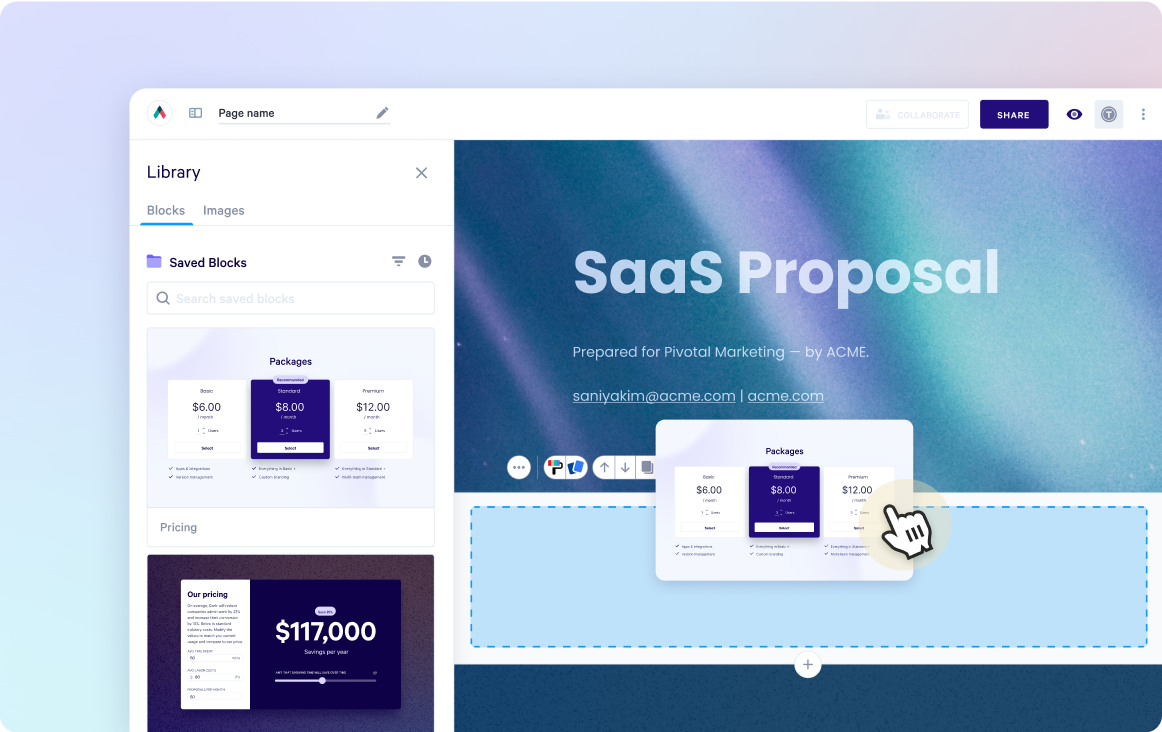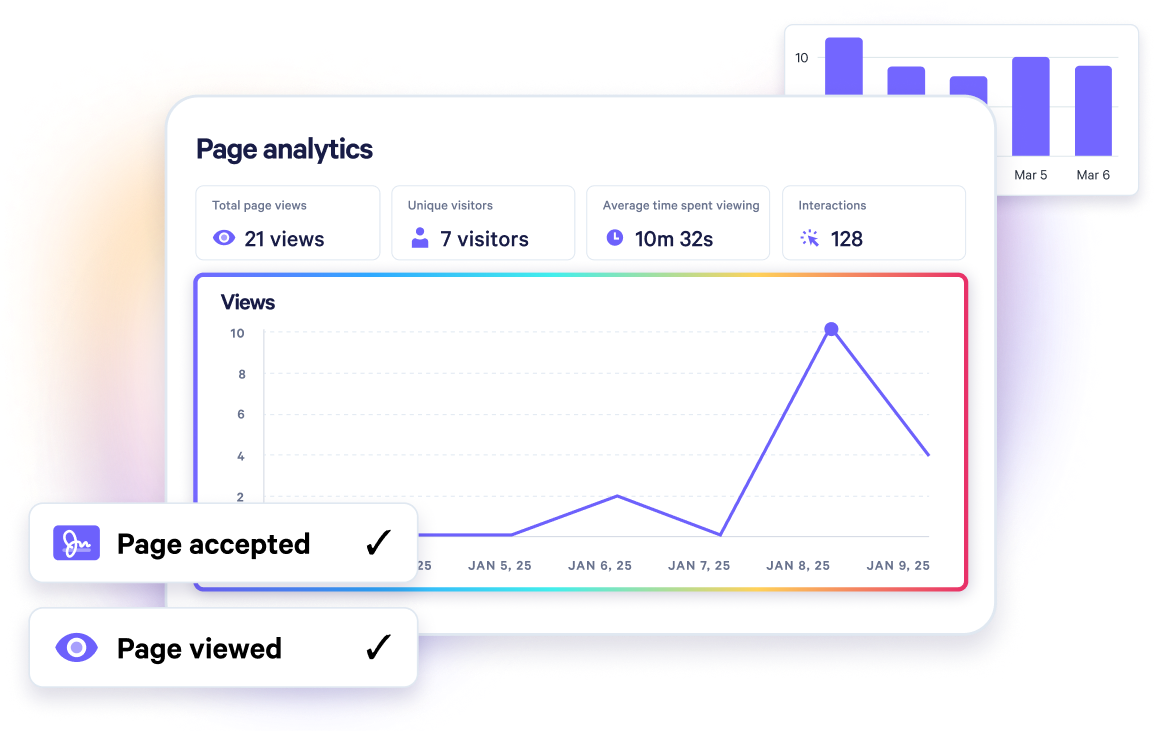Case Study Template
Illustrate your success stories with this versatile Case Study Template – emphasize project achievements, innovative solutions, and client satisfaction.

About this template
Demonstrate your expertise with our versatile Case Study Template. Showcasing successful projects, innovative solutions, and client satisfaction, this template builds credibility and trust with potential clients across various industries.
Illustrate the real-world impact of your solutions and foster trust among prospective clients. Our Case Study Template enables you to present your success stories effectively, positioning your business as a leader in your industry.
What's included?
- The challenge
- The solution
- The results
Why Qwilr?
Design interactive proposals
Impress buyers with interactive proposals that stand out. Qwilr’s drag-and-drop editor makes it easy to create on-brand, stunning collateral — no design skills needed. Add videos, dynamic pricing, and ROI calculators to deliver a unique experience, while automated brand customizations ensure every proposal looks professional.

Built-in e-sign functionality
Combine stunning proposals, plain-text agreements, and secure e-signatures in one tool. Add print-friendly agreements alongside dynamic content and collect legally compliant e-signatures with ease. Track progress, capture multiple signatures, and close deals faster with Qwilr’s integrated e-sign functionality.

Real-time proposal analytics
Qwilr’s analytics provide full visibility into buyer engagement. Track when proposals are opened, signed, or shared, and get instant notifications for key buyer activities. See what buyers click on, how they engage, and prioritize follow-ups based on real-time insights—all designed to help close deals faster.

Templates for every use case
Explore templates for sales, marketing, customer success, sales enablement and more.
Explore proposal templatesFrequently asked questions
To prepare a compelling case study, you need to follow these steps:
- Identify the client and problem to be solved
- Gather data and information about the project
- Develop a methodology and strategy to solve the problem
- Implement the solution and measure the results achieved
- Compile all the information and present it in a clear, easy-to-understand format
A case study typically follows this format:
- Introduction: Identify the client and their problem
- Solution: Describe the solution provided and the methodology used
- Results: Outline the results achieved through the project
- Quotes/Testimonials: Include testimonials and quotes from the client
- Call to action: Provide next steps and a call-to-action
To structure an effective case study, follow these tips:
- Use a clear, succinct title that captures the essence of the case study
- Introduce the client and describe the problem they were facing
- Provide details about the solution provided and the methodology used
- Showcase the results achieved and the impact on the client's business
- Include quotes and testimonials from the client to build trust and credibility
- Provide a call-to-action and next steps for interested parties









